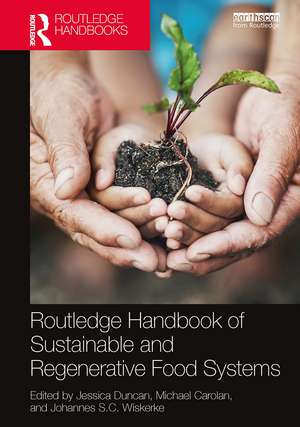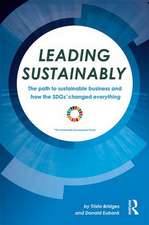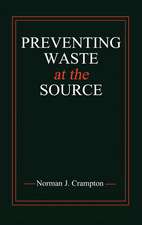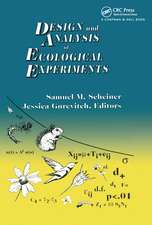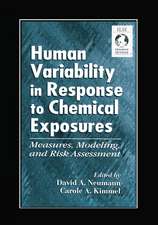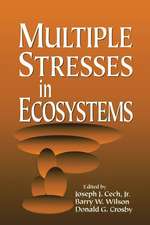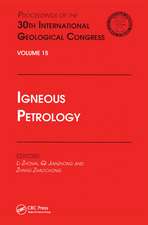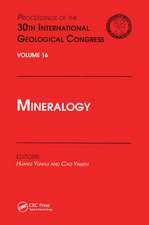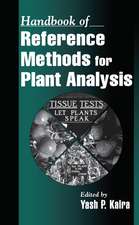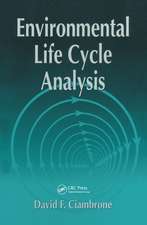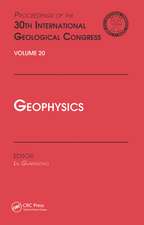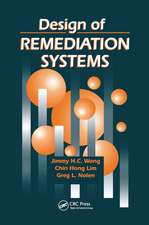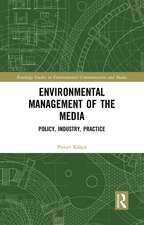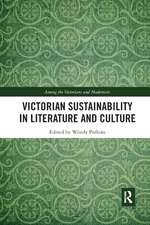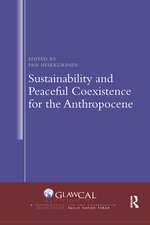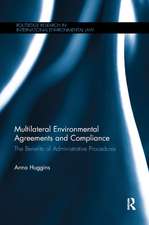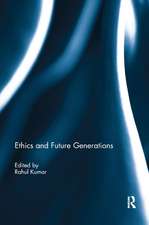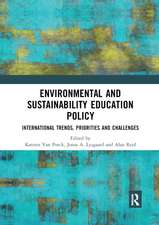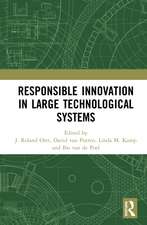Routledge Handbook of Sustainable and Regenerative Food Systems: Routledge Environment and Sustainability Handbooks
Editat de Jessica Duncan, Michael Carolan, Johannes S.C. Wiskerkeen Limba Engleză Paperback – 31 mai 2023
The future of food is uncertain. We are facing an overwhelming number of interconnected and complex challenges related to the ways we grow, distribute, access, eat, and dispose of food. Yet, there are stories of hope and opportunities for radical change towards food systems that enhance the ability of living things to co-evolve. Given this, activities and imaginaries looking to improve, rather than just sustain, communities and ecosystems are needed, as are fresh perspectives and new terminology. The Routledge Handbook of Sustainable and Regenerative Food Systems addresses this need. The chapters cover diverse practices, geographies, scales, and entry-points. They focus not only on the core requirements to deliver sustainable agriculture and food supply, but go beyond this to think about how these can also actively participate with social-ecological systems. The book is presented in an accessible way, with reflection questions meant to spark discussion and debate on how to transition to safe, just, and healthy food systems. Taken together, the chapters in this handbook highlight the consequences of current food practices and showcase the multiple ways that people are doing food differently.
The Routledge Handbook of Sustainable and Regenerative Food Systems is essential reading for students and scholars interested in food systems, governance and practices, agroecology, rural sociology, and socio-environmental studies.
| Toate formatele și edițiile | Preț | Express |
|---|---|---|
| Paperback (1) | 375.80 lei 3-5 săpt. | +37.52 lei 7-13 zile |
| Taylor & Francis – 31 mai 2023 | 375.80 lei 3-5 săpt. | +37.52 lei 7-13 zile |
| Hardback (1) | 1454.30 lei 6-8 săpt. | |
| Taylor & Francis – 14 aug 2020 | 1454.30 lei 6-8 săpt. |
Din seria Routledge Environment and Sustainability Handbooks
- 8%
 Preț: 446.44 lei
Preț: 446.44 lei -
 Preț: 344.05 lei
Preț: 344.05 lei -
 Preț: 345.96 lei
Preț: 345.96 lei -
 Preț: 341.55 lei
Preț: 341.55 lei -
 Preț: 332.04 lei
Preț: 332.04 lei - 15%
 Preț: 427.16 lei
Preț: 427.16 lei -
 Preț: 355.44 lei
Preț: 355.44 lei - 9%
 Preț: 1350.07 lei
Preț: 1350.07 lei - 8%
 Preț: 445.41 lei
Preț: 445.41 lei - 26%
 Preț: 1359.11 lei
Preț: 1359.11 lei - 25%
 Preț: 1223.03 lei
Preț: 1223.03 lei -
 Preț: 449.41 lei
Preț: 449.41 lei - 15%
 Preț: 441.09 lei
Preț: 441.09 lei - 25%
 Preț: 352.95 lei
Preț: 352.95 lei - 27%
 Preț: 1229.98 lei
Preț: 1229.98 lei - 26%
 Preț: 1218.32 lei
Preț: 1218.32 lei - 26%
 Preț: 1189.60 lei
Preț: 1189.60 lei -
 Preț: 460.58 lei
Preț: 460.58 lei - 25%
 Preț: 1192.62 lei
Preț: 1192.62 lei - 11%
 Preț: 306.64 lei
Preț: 306.64 lei - 15%
 Preț: 483.15 lei
Preț: 483.15 lei - 26%
 Preț: 1187.85 lei
Preț: 1187.85 lei - 18%
 Preț: 1565.66 lei
Preț: 1565.66 lei - 15%
 Preț: 509.71 lei
Preț: 509.71 lei - 23%
 Preț: 410.54 lei
Preț: 410.54 lei - 26%
 Preț: 1356.60 lei
Preț: 1356.60 lei - 25%
 Preț: 1221.45 lei
Preț: 1221.45 lei - 18%
 Preț: 1558.26 lei
Preț: 1558.26 lei - 25%
 Preț: 1218.92 lei
Preț: 1218.92 lei - 11%
 Preț: 350.19 lei
Preț: 350.19 lei - 25%
 Preț: 1260.99 lei
Preț: 1260.99 lei - 18%
 Preț: 1563.17 lei
Preț: 1563.17 lei - 26%
 Preț: 1188.43 lei
Preț: 1188.43 lei -
 Preț: 356.63 lei
Preț: 356.63 lei - 25%
 Preț: 1220.17 lei
Preț: 1220.17 lei - 15%
 Preț: 507.27 lei
Preț: 507.27 lei
Preț: 375.80 lei
Nou
Puncte Express: 564
Preț estimativ în valută:
71.91€ • 75.08$ • 59.51£
71.91€ • 75.08$ • 59.51£
Carte disponibilă
Livrare economică 14-28 martie
Livrare express 28 februarie-06 martie pentru 47.51 lei
Preluare comenzi: 021 569.72.76
Specificații
ISBN-13: 9781032570396
ISBN-10: 1032570393
Pagini: 478
Ilustrații: 10
Dimensiuni: 174 x 246 x 32 mm
Greutate: 0.84 kg
Ediția:1
Editura: Taylor & Francis
Colecția Routledge
Seria Routledge Environment and Sustainability Handbooks
Locul publicării:Oxford, United Kingdom
ISBN-10: 1032570393
Pagini: 478
Ilustrații: 10
Dimensiuni: 174 x 246 x 32 mm
Greutate: 0.84 kg
Ediția:1
Editura: Taylor & Francis
Colecția Routledge
Seria Routledge Environment and Sustainability Handbooks
Locul publicării:Oxford, United Kingdom
Public țintă
Postgraduate and UndergraduateCuprins
1. Regenerating Food Systems: A Social-Ecological Approach 2. A Political Economy for Regenerative Food Systems: Towards an Intergrated Research Agenda 3. Indigenous Livelihood 4. Indigenous Good Living Philosophies and Sustainable Food Systems in Aotearoa New Zealand and Peru 5. Beyond Culturally-Significant Practices: Decolonizing Ontologies for Regenerative Food-Systems 6. Traditional Food, the Right to Food, and Sustainable Food Systems 7. Co-Creative Governance of Agroecology 8. Justice 9. Labor Regeneration: Work, Technology, and Resistance 10. Caring Agricultural and Food Practices 11. Animal Functionality and Interspecies Relations in Regenerative Agriculture: Considering Necessity and the Possibilities of Non-Violence 12. Linking Small-Scale Fishing and Community Capitals: The Case of Atlantic Cod 13. Food and Markets: The Contribution of Economic Sociology 14. The Symbiotic Food System 15. Food Sharing 16. Financing Food System Regeneration? The Potential of Social Finance in the Agrifood Sector 17. Citizen Entrepreneurship: The Making, and Remaking, of Local Food Entrepreneurs 18. Coffee Micro-Mills in Costa Rica: a Non-Cooperative Path to Regenerative Agriculture? 19. Commons and Commoning to Build Ecologically Reparatory Food Systems 20. Foraging by Foraging: The Role of Wild Products in Shaping New Relations With Nature 21. Social Processes of Sharing and Collecting Seeds as Regenerative Agricultural Practices 22. Enabling More Regenerative Agriculture, Food, and Nutrition in the Andes: The Relational Bio-Power of "Seeds" 23. Circular Food Economies 24. A Digital "Revolution" in Agriculture? Critically Viewing Digital Innovations Through a Regenerative Food Systems Lens 25. From Weekend Farming to Telephone Farming: Digital Food Pathways in Africa 26. Rural–Urban Linkages 27. Planning Regenerative Working Landscapes 28. Urban Food Planning: A New Frontier for the City and Regenerative Food System Builders 29. Cradle to Cradle: The Role of Food Waste in a Regenerative Food System 30. Controversies Around Food Security: Something Difficult to Swallow
Notă biografică
Jessica Duncan is an Associate Professor in the Rural Sociology Group, Wageningen University, the Netherlands.
Michael Carolan is a Professor in the Department of Sociology, Colorado State University, USA.
Johannes S.C. Wiskerke is Professor and Chair of the Rural Sociology Group, Wageningen University, the Netherlands.
Michael Carolan is a Professor in the Department of Sociology, Colorado State University, USA.
Johannes S.C. Wiskerke is Professor and Chair of the Rural Sociology Group, Wageningen University, the Netherlands.
Recenzii
"This comprehensive volume includes the voices of nearly 50 global scholars, researchers, and thought leaders in fields as diverse as agriculture, political ecology, nutrition, human geography, and development. It offers a broad view of this multidimensional field of study while building the paradigm for studying systems that are sustainable and regenerative.[...]Each contribution comes with discussion questions, suggestions for further reading, and extensive references."
-S. P. Duffy, Quinnipiac University, CHOICE
-S. P. Duffy, Quinnipiac University, CHOICE
Descriere
This Handbook includes contributions from established and emerging scholars from around the world and draws on multiple approaches and subjects to explore the socio-economic, cultural, ecological, institutional, legal and policy aspects of regenerative food practices.
